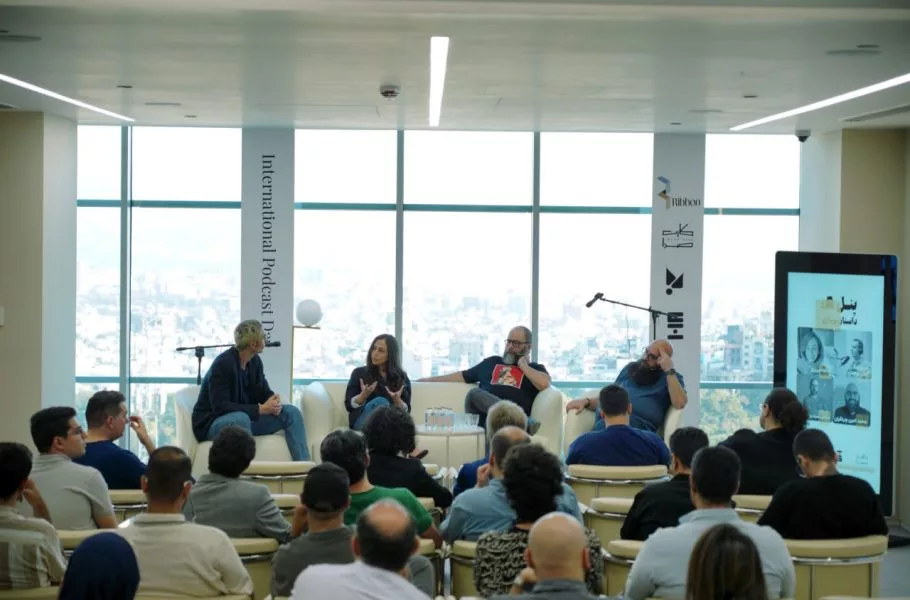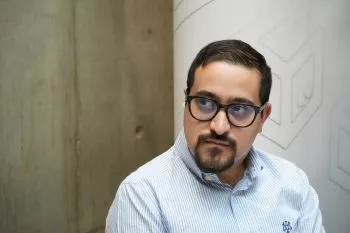
Persian Podcasts Reflect on Their Growing Pains
Iranian podcasters marked World Podcast Day by addressing challenges in creativity and growth within this evolving medium.
On September 30, World Podcast Day, the Persian podcasting community came together for a specialized event in Tehran. Hosted at the Ribbon building, the gathering provided an opportunity for creators to exchange ideas, share experiences, and discuss the challenges and opportunities in this burgeoning medium.
Organized by 'Karte Seda Podcast,' content house 'Koja,' and studio 'Be Nahvi Digar,' in collaboration with 'Ribbon Tehran,' the event featured three expert panels with prominent figures from the Persian podcasting scene.
A Day for Persian Podcasts
World Podcast Day was first celebrated in 2014 to honor the advent and growth of podcasting. The day serves as a tribute to the power of this medium and recognizes the efforts of podcasters worldwide.
During the event, two leading figures in Persian podcasting shared their insights. In one interview, Siavash Safarianpour, a renowned producer, discussed the essence and future of podcasts. In another conversation, journalist and sports podcaster Mojtaba Hashemi explored the unique challenges of creating sports podcasts in Iran.
Podcasts Are a Personal-Collective Space
When asked about his favorite aspect of podcasting, Safarianpour emphasized its intimate nature. "The most enjoyable part is becoming an engaged listener who values people’s personalities over topics," he explained. He described podcasts as more than just a classic medium—they are a blend of social networks and personal spaces. Initially a podcast consumer himself, Safarianpour was drawn into production by his fascination with this innovative storytelling platform.
Reflecting on the rise of podcasts in Iran during an era dominated by video content and declining radio listenership, he admitted he hadn’t anticipated their popularity. "I loved radio - it always felt warmer than television. Podcasts brought me closer to that old love while offering something fresh," he said. Despite the rise of podcasts, Safarianpour believes that radio remains vital globally, but has suffered locally due to declining content quality, rather than competition from new media.
He highlighted how podcasts differ fundamentally from traditional media like radio or television: "In podcasts, it’s all about the creator’s DNA rather than an organization’s agenda." For instance, historical podcasts are abundant in Iran, but shows like 'Rokh' stand out due to hosts like Amir Soodbakhsh, whose unique storytelling style captivates audiences.
Safarianpour also warned against imposing censorship on podcasts: "If regulations are enforced, podcasts will become underground phenomena—untraceable and non-transparent." He noted that self-regulation has allowed creators to maintain authenticity while adhering to societal norms.
However, Iranian podcasters face significant hurdles. International sanctions complicate monetization through global platforms, while limited access to professional studios hampers consistent quality. "We need investment in studio infrastructure for sustainable growth," he urged.
Looking ahead, Safarianpour sees artificial intelligence as both a transformative tool and an integral part of podcasting’s future. "AI enhances creativity and efficiency," he said, drawing parallels to how printing presses revolutionized literature.
Sports Podcasts Face Unique Challenges
Mojtaba Hashemi, a sports journalist turned podcaster, detailed the obstacles specific to sports-focused audio content. Unlike visual media, where analysis can be paired with graphics or footage, sports podcasts must rely solely on narrative skill, a challenge Hashemi likened to asking a boxer to fight with tied hands.
Hashemi noted that their target audience is distinct from casual fans who gravitate towards mainstream or fan-centric platforms. Instead, his listeners are dedicated enthusiasts seeking deeper technical analysis - a niche audience that grew during the pandemic when podcast consumption surged globally.
Comparing Iran’s sports media landscape with outlets like Sky Sports or ESPN highlights stark differences. "It’s like fantasy football in England versus Iran," Hashemi remarked. While international outlets have an abundance of compelling stories and professional resources, Iranian creators often struggle with limited options, frequently resorting to critical commentary on systemic issues within domestic sports.
When asked about expanding beyond football into other sports genres like wrestling or basketball, Hashemi expressed skepticism given current conditions. He believes non-football podcasts would need to pivot towards character-driven storytelling focused on individual athletes or unique narratives rather than analytical formats.
Both Safarianpour and Hashemi agree that despite its challenges - ranging from financial barriers to creative constraints - podcasting remains one of the most accessible entertainment forms for Iranians today.












